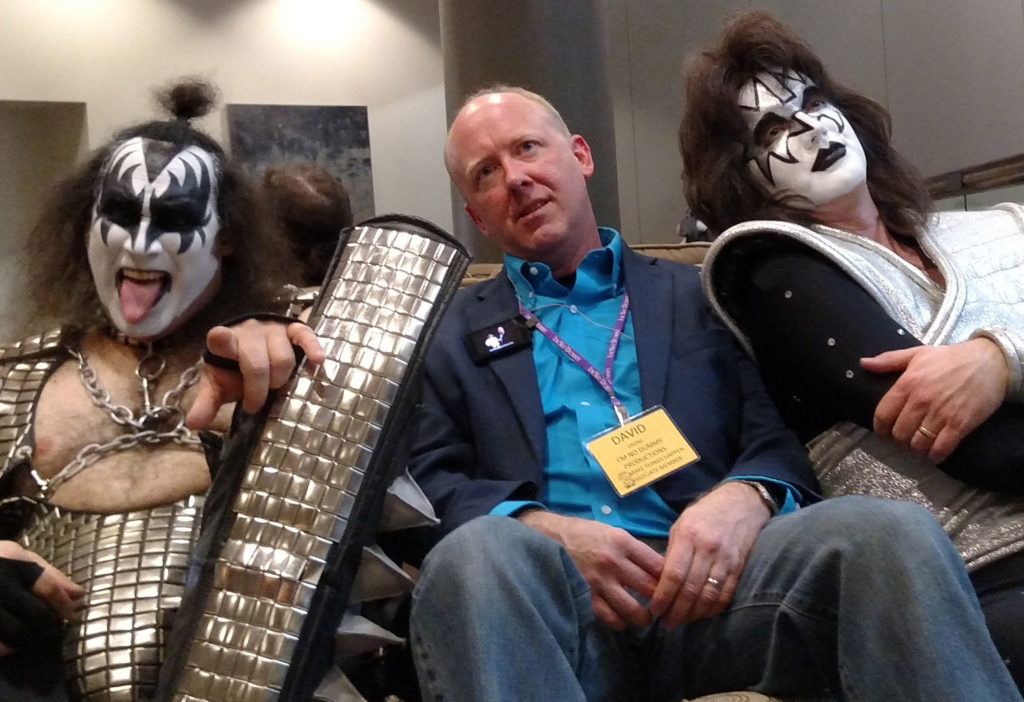 If you won the lottery, would you still work?
If you won the lottery, would you still work?
That question has been on my mind since the summer of 1984.
I was a starry-eyed recent graduate, happy to have my first real job as a bona fide Electrical Engineer and eager to prove myself. So, I was thrilled when, less than a year after I started, my boss asked me to attend a trade show where we would have a booth to show off our products.
The trade show was in Atlantic City at the big convention center right on the boardwalk. This was back when Atlantic City was still in its Heyday. It was exciting.
It was a major trade show for the scientific measurements industry. I had never seen anything like it. It was full of big-name manufacturers showing off their large sophisticated machinery with equally large and sophisticated names.
The exhibits were impressive. On display was a vast array of complex scientific research instruments, measurement systems, and elaborate demonstrations of these products.
Our booth was not quite so impressive. We had a fish tank and ping-pong balls. (I wish I had a photo. It was truly a sight to behold.)
But, it did demonstrate the basic functionality of our product. Its simplicity created an opening for a conversation. At least, that’s what we told ourselves.
Have you ever worked in a trade show booth? Those of you who have, know it is grueling work. At the end of our first day, we were exhausted.
But, we were in Atlantic City!
So, we left the convention center and headed out for dinner … to … the Playboy Club. That is a story for another time.
As we were walking along the boardwalk we passed a sign advertising the lottery and its current jackpot of $1 million. Remember, this was 1984.
That was when Lou, the founder and president of the company, asked me the question. “Hey, David. If you won the lottery would you still work?”
Alert! Alert! Danger Will Robinson!
I may have been young and naïve, and believe me, I was. But, I knew a trick question when I heard one. So, I took great care with my answer.
After a reasonable pause to demonstrate I had appropriately considered the question, I confidently said, “Yes.” Lou seemed satisfied and we moved on, never discussing it again.
But, the question lingered in my head. In fact, that question became a guiding principle throughout my career. Because I knew that, “Yes”, was an incomplete answer.
The full answer, the one that I so carefully avoided saying out loud, was, “Yes, but not for you.”
As excited as I was to be there, I knew it was not a forever job. I knew this was just a starting point in my career.
Throughout my career, I have asked myself variations of that question on a regular basis.
“If you won the lottery, would you still do this?” And, “Would you still do it here?”
One of the hot topics of conversation in the business world today is “employee engagement”. It’s an especially big buzzword in the HR circles.
Employee engagement, retention and satisfaction. They all tend to get lumped together. And I do think it is an important topic.
What is the first thing companies typically do when they want to measure these? Right. The employee satisfaction survey.
Have you ever taken one of these? I’ve done several. Some of them were quite lengthy. And that’s part of the problem.
If you truly want to measure employee satisfaction, you only need to ask one question.
“If you won the lottery, would you still work here? Why? Or Why not?”
If you believe employee satisfaction is important, the goal is simple. Create an environment where the answer to that question is a resounding, “YES”.
How do you do that? Obviously, there is no one answer for all situations. Since you are reading this blog, then you know that my primary answer is, “Make Work Fun!” How you do that is the real challenge – and worth the effort.
Let’s look at the personal side of this, though.
If you were taking this one-question survey and your answer were, “NO”, my question for you would be, “Then why are you still here?”
I’m sure you’ve worked with people who do nothing but complain. Day in, day out, the only thing that seems to make them happy is to tell you how unhappy they are, and how much they hate their job.
The only response to this is, “Then why are you still here?” And, “What are you going to do about it?”
We do have a choice. The choice is not whether or not to win the lottery. Although, if you want to win, you do need to buy a ticket.
Our choice is, what are we going to do about it? Why wait?
If you don’t love what you are doing, if you are not excited to get up in the morning, what’s holding you back from making a change?
Define your own jackpot. Print your own lottery ticket.
Live your life with a resounding, “YES”.










